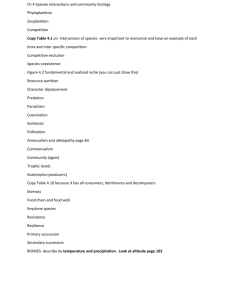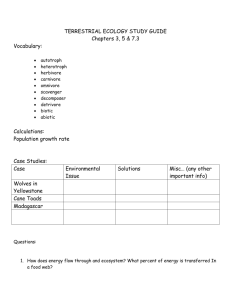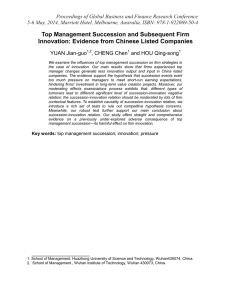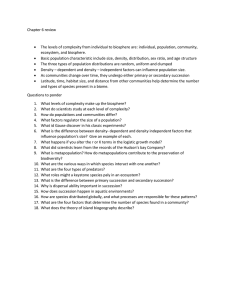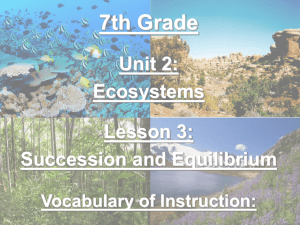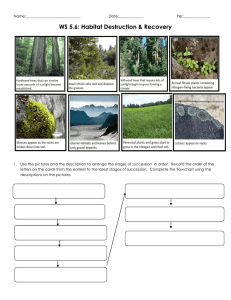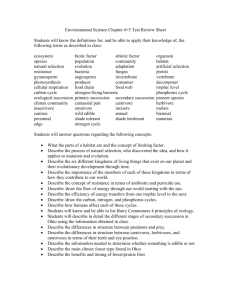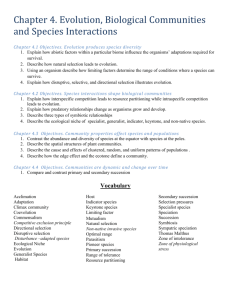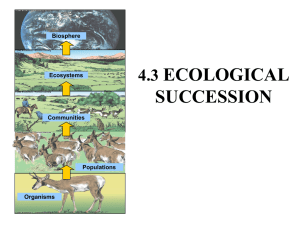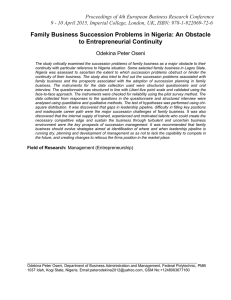ABSTRACT THESIS: Succession of the Built Environment: A Regenerative Approach to the
advertisement
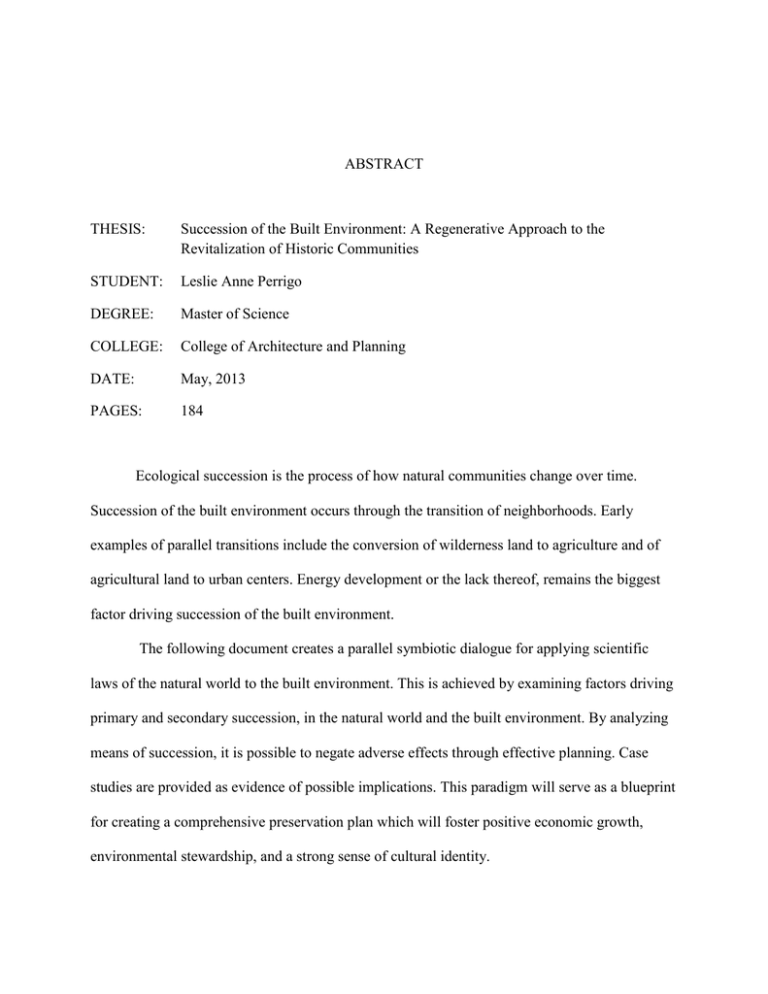
ABSTRACT THESIS: Succession of the Built Environment: A Regenerative Approach to the Revitalization of Historic Communities STUDENT: Leslie Anne Perrigo DEGREE: Master of Science COLLEGE: College of Architecture and Planning DATE: May, 2013 PAGES: 184 Ecological succession is the process of how natural communities change over time. Succession of the built environment occurs through the transition of neighborhoods. Early examples of parallel transitions include the conversion of wilderness land to agriculture and of agricultural land to urban centers. Energy development or the lack thereof, remains the biggest factor driving succession of the built environment. The following document creates a parallel symbiotic dialogue for applying scientific laws of the natural world to the built environment. This is achieved by examining factors driving primary and secondary succession, in the natural world and the built environment. By analyzing means of succession, it is possible to negate adverse effects through effective planning. Case studies are provided as evidence of possible implications. This paradigm will serve as a blueprint for creating a comprehensive preservation plan which will foster positive economic growth, environmental stewardship, and a strong sense of cultural identity.
